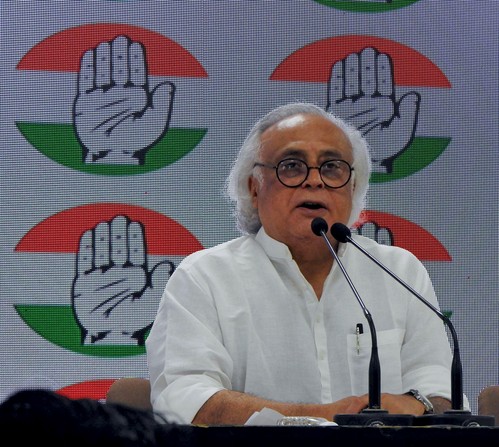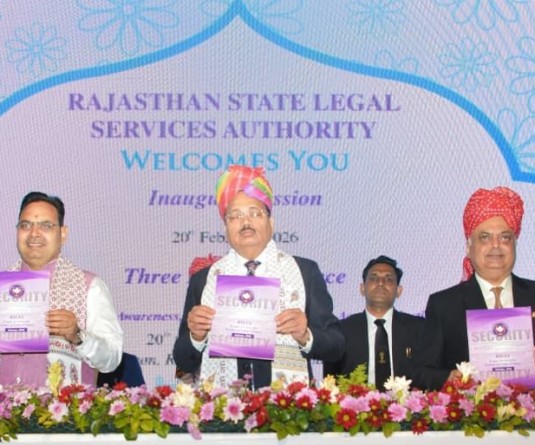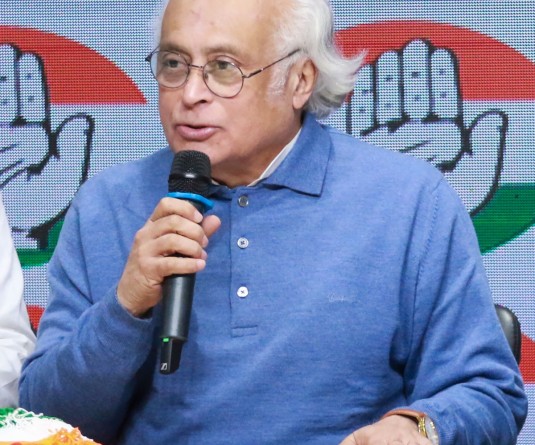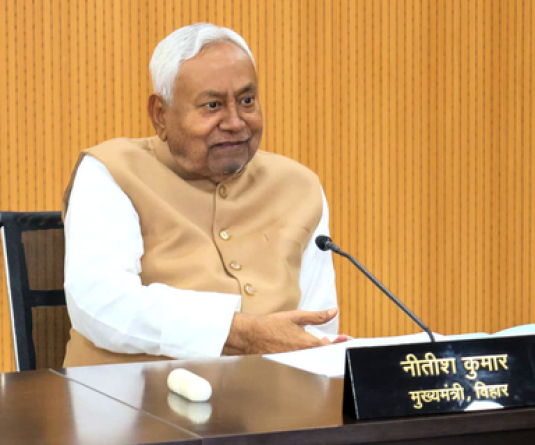IANS Photo

New Delhi, October 12 (IANS) Congress leader Jairam Ramesh on Thursday said the Supreme Court has set up a seven judge bench headed by the CJI Chandrachud to hear his petitions challenging the unconstitutional manner in which the Modi government passed key Bills by getting them declared as Money Bills, and said that hopefully, the final verdict will be forthcoming soon as it will have far-reaching implications on the very functioning of Parliament.
In a post on X, Ramesh, who is also party's communications incharge said, "Finally, the Supreme Court has set up a seven judge bench, headed by the CJI himself, to hear my petitions challenging the unconstitutional manner in which the Modi government has passed key Bills by getting them declared as Money Bills."
Ramesh said that he has repeatedly raised this issue in Parliament and outside it through three petitions in the Supreme Court -- first one filed on April 6, 2016 -- as it denies the Rajya Sabha the opportunity to discuss or pass amendments to key legislations.
"Examples include the Aadhaar Bill, the Bill diluting the powers of Tribunals including the National Green Tribunal, and the Bill to make the Prevention of Money Laundering Act more draconian," he said.
"Hopefully, the final verdict will be forthcoming soon as it will have far-reaching implications on the very functioning of the Parliament," the Rajya Sabha MP added.
Ramesh has challenged the amendments made to the money laundering law, PMLA, through Money Bills since 2015. Ramesh has also challenged the passage of Aadhaar Bill as Money Bill.
According to the Indian constitution, the Money Bill is a Bill in which the Rajya Sabha has no power to amend or reject. It can make suggestions but the Lok Sabha's say is final.
Article 110 of the Indian constitution describes a Money Bill as a Bill that has provisions regarding the imposition, abolition, remission, alteration or regulation of any tax; regulating government borrowings and financial obligations, custody, and flow of funds from the Consolidated Fund of India (CFI).
In July 2022, the apex court upheld the 2019 amendments made to the PMLA, 2002 that deal with ED's power of arrest, attachment, and search and seizure.
While observing that Parliament had the power to make these amendments, the court said that Parliament enacted PMLA as a result of international commitment to sternly deal with the menace of money laundering.
However, since the Centre brought in the changes through the Finance Act 2019, the Supreme Court has left the question of deciding whether the said amendments could be brought in as a Money Bill on the soon-to-be constituted seven Judge Constitutional bench.
If the bench decided that the 2019 amendments could not have been brought in as a Money Bill then these amendments would become invalid.
The seven judge constitutional bench will address the question of whether or not these Acts mentioned above could have been brought in as a Money Bill.






